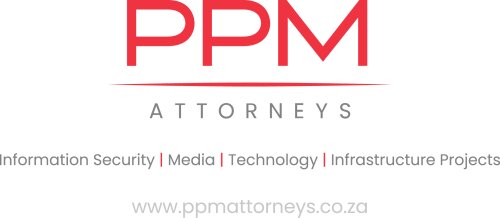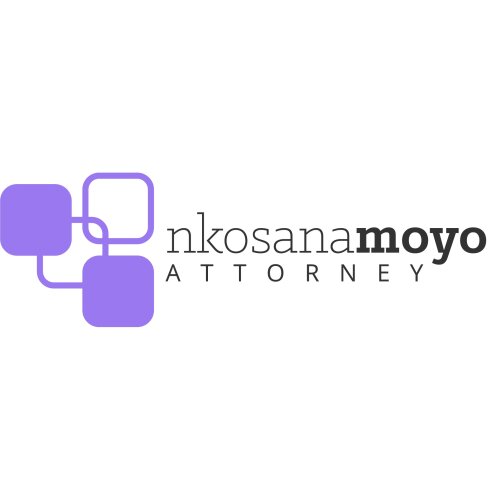Best Data Center & Digital Infrastructure Lawyers in Johannesburg
Share your needs with us, get contacted by law firms.
Free. Takes 2 min.
List of the best lawyers in Johannesburg, South Africa
About Data Center & Digital Infrastructure Law in Johannesburg, South Africa
Data centers and digital infrastructure are fundamental to the modern economy, supporting everything from cloud storage and financial services to e-commerce and government operations. In Johannesburg, the heart of South Africa's business and technology activities, the growth of data centers has accelerated in response to rising demand for digital services. With this expansion comes a complex legal landscape involving property rights, energy and environmental regulations, privacy and data protection, cybersecurity, and telecommunication laws. Legal frameworks in Johannesburg aim to support robust growth while ensuring alignment with both national standards and global best practices.
Why You May Need a Lawyer
Legal support is crucial for individuals and businesses involved in the data center and digital infrastructure sector. Common scenarios where legal advice may be required include:
- Negotiating contracts for land acquisition, leasing, or colocation facilities
- Handling regulatory approvals and permits for construction and operation
- Ensuring compliance with data protection laws such as the Protection of Personal Information Act (POPIA)
- Addressing cybersecurity risks and liability issues
- Drafting service level agreements (SLAs) and cloud hosting contracts
- Dealing with cross-border data transfers and compliance with international standards
- Managing disputes related to outages, data breaches, or contractual breaches
- Structuring public-private partnerships or engaging with government initiatives in digital infrastructure
- Responding to intellectual property concerns related to software and hardware used in data centers
- Navigating environmental impact assessments and ensuring legal use of energy resources
Local Laws Overview
Key aspects of the local legal framework for data center and digital infrastructure in Johannesburg include:
- Protection of Personal Information Act (POPIA): This law governs the collection, processing, storage, and transfer of personal data, and sets requirements for both physical and digital security measures in data centers.
- Electronic Communications and Transactions Act (ECTA): Regulates electronic communications, transactions, and cybercrime, with implications for digital infrastructure operations.
- Municipal By-Laws and Zoning: Local acts regulate land use, building codes, environmental compliance, and energy consumption specific to Johannesburg’s jurisdiction.
- National Environmental Management Act (NEMA): Sets guidelines for environmental impact assessments, waste management, and sustainable operations for energy-intensive facilities.
- Employment Laws: Structures employment practices and occupational health and safety within data centers.
- Telecommunications Regulations: Stipulated by the Independent Communications Authority of South Africa (ICASA), these laws govern the licensing and operation of digital communications infrastructure.
Frequently Asked Questions
What is considered digital infrastructure in Johannesburg?
Digital infrastructure includes physical facilities such as data centers, communication towers, fiber-optic cables, servers, and network hardware enabling digital connectivity and digital service delivery.
Are there specific permits required to build a data center in Johannesburg?
Yes. Developers must obtain land use approval, building permits, environmental impact assessments, and adhere to municipal zoning regulations before constructing a data center.
How does POPIA affect data centers in Johannesburg?
POPIA mandates that data centers implement appropriate security measures to protect personal information, notify authorities and individuals in the event of data breaches, and comply with rules on cross-border data transfers.
What legal compliance is required regarding energy use in data centers?
Data centers must adhere to NEMA standards for sustainable resource use, complete relevant environmental assessments, and comply with municipal energy policies. This is especially relevant given Johannesburg's electricity supply challenges.
Do data center operators need to comply with international standards?
While local laws take precedence, many operators choose compliance with international standards such as ISO/IEC 27001 for information security to attract international clients and ensure robust risk management.
What steps should be taken in the event of a data breach?
Notify the Information Regulator and affected individuals as required by POPIA, contain the breach, assess its impact, and implement corrective actions. Legal counsel can help manage regulatory responsibilities and potential liability.
Can Johannesburg-based data centers host data for international clients?
Yes, provided they comply with local privacy laws and any applicable cross-border data transfer requirements. Legal advice is essential due to the complexity of international data transfer regulations.
What are common contractual challenges in data center operations?
Key issues include clarity of service level agreements, liability for outages or security incidents, data ownership terms, and dispute resolution mechanisms. Skilled legal drafting and negotiation are critical.
How can disputes in data center collaborations be resolved?
Many contracts include dispute resolution mechanisms, such as mediation or arbitration, which can help parties resolve disagreements without lengthy litigation. Legal representation ensures protection of your interests.
Who regulates telecommunications and electronic communications in Johannesburg?
The Independent Communications Authority of South Africa (ICASA) regulates electronic communications networks and services, including those integral to data center operations.
Additional Resources
To further guide your understanding or seek assistance, consider engaging with the following resources within Johannesburg and across South Africa:
- Information Regulator (South Africa) - for POPIA compliance and data breach reporting rules
- Independent Communications Authority of South Africa (ICASA) - for telecommunication licensing and regulations
- Department of Environmental Affairs - for guidance on environmental laws relating to energy and waste management
- City of Johannesburg Metropolitan Municipality - for municipal zoning, land use, and building permit queries
- Technology legal and industry associations, such as the Internet Service Providers Association (ISPA) and relevant local bar associations
Next Steps
If you are involved in data center or digital infrastructure projects in Johannesburg and require legal assistance:
- Clarify your specific legal concerns, such as regulatory compliance, contracting, data privacy, or dispute resolution
- Consult a legal professional or specialist law firm with expertise in data center and technology infrastructure matters
- Gather all relevant documentation, permits, contracts, and communications to streamline discussions with your legal advisor
- Stay updated on local developments and changes in law that may impact your project or operations
- Consider ongoing legal support to navigate regular compliance reviews, contractual negotiations, and risk assessments as your operations evolve
Seeking expert legal advice early in your data center or digital infrastructure venture can help you avoid costly mistakes, ensure compliance, and protect your interests in Johannesburg's dynamic digital economy.
Lawzana helps you find the best lawyers and law firms in Johannesburg through a curated and pre-screened list of qualified legal professionals. Our platform offers rankings and detailed profiles of attorneys and law firms, allowing you to compare based on practice areas, including Data Center & Digital Infrastructure, experience, and client feedback.
Each profile includes a description of the firm's areas of practice, client reviews, team members and partners, year of establishment, spoken languages, office locations, contact information, social media presence, and any published articles or resources. Most firms on our platform speak English and are experienced in both local and international legal matters.
Get a quote from top-rated law firms in Johannesburg, South Africa — quickly, securely, and without unnecessary hassle.
Disclaimer:
The information provided on this page is for general informational purposes only and does not constitute legal advice. While we strive to ensure the accuracy and relevance of the content, legal information may change over time, and interpretations of the law can vary. You should always consult with a qualified legal professional for advice specific to your situation.
We disclaim all liability for actions taken or not taken based on the content of this page. If you believe any information is incorrect or outdated, please contact us, and we will review and update it where appropriate.











